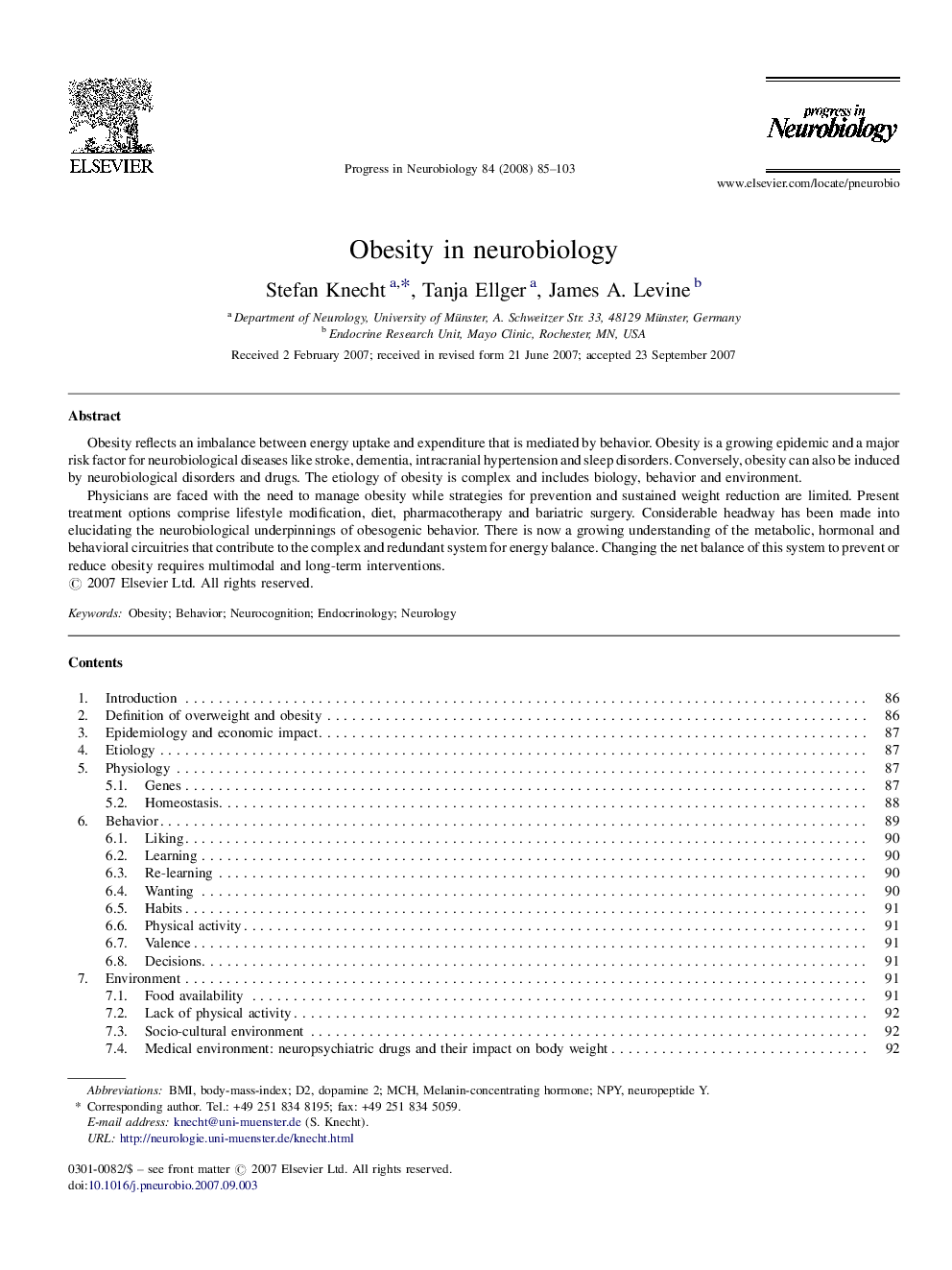| Article ID | Journal | Published Year | Pages | File Type |
|---|---|---|---|---|
| 4353934 | Progress in Neurobiology | 2008 | 19 Pages |
Obesity reflects an imbalance between energy uptake and expenditure that is mediated by behavior. Obesity is a growing epidemic and a major risk factor for neurobiological diseases like stroke, dementia, intracranial hypertension and sleep disorders. Conversely, obesity can also be induced by neurobiological disorders and drugs. The etiology of obesity is complex and includes biology, behavior and environment.Physicians are faced with the need to manage obesity while strategies for prevention and sustained weight reduction are limited. Present treatment options comprise lifestyle modification, diet, pharmacotherapy and bariatric surgery. Considerable headway has been made into elucidating the neurobiological underpinnings of obesogenic behavior. There is now a growing understanding of the metabolic, hormonal and behavioral circuitries that contribute to the complex and redundant system for energy balance. Changing the net balance of this system to prevent or reduce obesity requires multimodal and long-term interventions.
